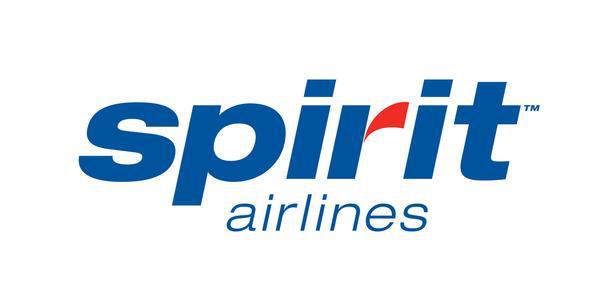Summary
- In light of rebounding oil prices, common sense would have us investing in the wrong stocks.
- Rising oil prices tends to bring with it rising interest rates, which hurts many industries.
- The industries to avoid at this time include retail, airlines, "household name" stocks, and car manufacturers.
- To profit from rebounding crude oil prices, invest in the companies doing the exploration and digging, not the big-name oil retailers you tend to think of.
Without dips and bounces, there is no money to be made in the stock market. Yet with every new high or low in crude oil, too many expert investors still make poor decisions by investing in stocks that adhere to "common sense." As oil begins to rebound and likely hit $100 in 2016, investors are increasingly eyeing those delicious-but-unhealthy "common sense" stocks. That's why I wrote this article. No matter how good a trader you are, you're still susceptible to human bias. I hope to drive some sense into you by pointing out how the wise decision isn't always the wise decision. Avoid investing in the following stocks and look for your opportunity to leverage rebounding oil prices elsewhere (stock suggestions at the bottom of the article).
Airline Stocks: Spirit Airlines (SAVE)

This stock's ticker sums it up: It's a budget airline. But that means the bottom-line matters. And when oil prices go up, Spirit Airlines will see its profit margins hurting. Also, SAVE is incredibly overpriced. Its current price of $75 per share is nearly double that of Delta (NYSE:DAL). And while DAL and SAVE will both fall when oil prices rebound (statistical data shows this to be factual), SAVE should fall considerably more because of its emphasis on squeezing pennies. Stay away from SAVE and other airline stocks at all costs.
Other airline stocks to avoid:
- American Airlines (NASDAQ:AAL)
- Delta Airlines
- Hawaiian Holdings (NASDAQ:HA)
- Southwest Airlines (NYSE:LUV)
- United Continental Holdings (NYSE:UAL)
Carmakers: Tesla Motors (TSLA)

This hot stock might seem safe because it produces cars that don't rely on oil, but think twice before you buy any shares. Not all car purchases are based on oil prices directly, but many are based on oil prices indirectly. So here's the bad news: As oil increases, so does interest rates, which makes financing cars all the more difficult. With US wages stabilizing, buying a car in a strong oil economy isn't a smart decision for the middle and lower class. TSLA might look strong, but it's a far way away from its $280 peak, and the drop in the price of crude oil certainly hasn't spiked TSLA's price. When investing, ignore common sense and focus on statistics.
Other carmaker stocks to avoid:
- Ford Motor (NYSE:F)
- Thor Industries (NYSE:THO)
- Tata Motors (NYSE:TTM)
- Winnebago Industries (NYSE:WGO)
- Zap (OTCQB:ZAAP)
Household Stocks: Coca-Cola (KO)

This stock is not that bad if you are looking for an investment that's safe and pays out high dividends. However, you have to consider several things when oil rises, the first of which is its price. Yes, Coca-Cola is at a ten-year high, but that's not necessarily a good thing. This is called being overpriced. And being overpriced is not an advantage for a so-called "safe" investment! Coca-Cola's potential dividends and safety are not good enough to combat the drop in consumer spending that comes along with oil price hikes. Yes, consumer spending drops when oil rises as a result of interest rates being correlated to oil. And recently, there has been talk of increasing the interest rates, which is not good for household-name stocks. Although Coca-Cola does have a large international market, its main growth has been due to US consumer spending. Coca-Cola cannot grow - let alone maintain its position - if rising oil prices and interest rates capsize consumer spending. You can buy a better consumer stock with a bigger international market for the same amount of money - check out Unilever (NYSE:UN), for example.
Other household stocks to avoid:
- Johnson and Johnson (NYSE:JNJ)
- McDonald's (NYSE:MCD)
- Pepsico (NYSE:PEP)
- Procter and Gamble (NYSE:PG)
- Starbucks (NASDAQ:SBUX)
Retail Stocks: Wal-Mart (WMT)

Needless to say, if you've been watching this stock, WMT is not a good investment anyway. WMT is remarkably bearish, which makes it good for shorts, credit spreads, and put options. But it's certainly not a good investment no matter how many Wal-Marts you see as you drive on America's roads. And that's the key word: drive. As oil prices rise, Americans are less likely to drive, and therefore less likely to spend. For investors using "common sense," stocks like WMT seem to be a safe investment as Wal-Mart sells necessities at bargain-bin prices; and people must buy toilet paper even when they cannot afford gas. But the truth is, as gas prices rise, Americans are simply less likely to spend the gas money to drive to go shopping. And that includes the trip to Wal-Mart - they'd rather just pick something up at the nearest grocery store. And on top of this, correlational studies have found that WMT has the highest negative correlation with oil prices, making it perhaps the worst investment you can make when oil rises.
Other retail stocks to avoid:
- Costco (NASDAQ:COST)
- Mattel (NASDAQ:MAT)
- Ross Stores (NASDAQ:ROST)
- Target (NYSE:TGT)
- TJ Maxx (NYSE:TJX)
Do Buy These Stocks

I prefaced this article with what not to buy simply because in the stock market, sometimes the smartest move is not to play. But should you wish to ignore the Wargames reference and produce wealth while oil rebounds, your best bet is to invest in energy stocks. It seems like a no-brainer, and it is, but for the best results, you need to invest in a specific type of energy stocks: those involved in oil production. After all, if the price of crude increases, the time and effort spend it procuring that crude will simultaneously increase, improving the revenue of both companies that explore and dig for oil as well as the manufacturing suppliers for those companies. So, instead of giving in to common sense and buying Exxon (NYSE:XOM), buy the little guys behind XOM.
Energy stocks to buy:
Additional disclosure: I am long on AAL but intend to exit the position once the area gap on Jan 28 to Jan 29 fills at $46.30.
No Comment